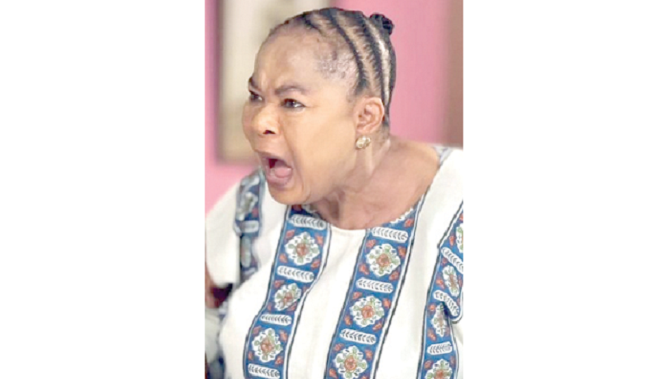She is, no doubt, one of the finest and most versatile Nollywood actresses in Nigeria. Several decades of experience and currently still celebrated as the queen of the screen, having gathered some of the most coveted acting awards locally and internationally, Sola Sobowale, in a recent chat with ROTIMI IGE, explains her role in Seun Oloketuyi’s new biopic ‘Awujale’, what endeared her to the script and why history must be documented for next generations.
You have played so many characters in the past. When you got the script for Awujale, how did you feel?
I have played so many roles as you have rightly said. I have played an Oba before, just like in ‘King of Boys’; I have also played the role of Iya Oba, so I was happy. I felt so honoured. In Awujale, I am playing the mother of a very important Oba in Yorubaland, so that is a plus on my CV.
Were you worried at any point seeing as you would be depicting the mother of someone who is still alive, someone who can say you did well or you didn’t do well?
Definitely, but that is always the challenge. You have to depict the mannerism of Mama, the way she talks, how she composes herself, and everything she embodies. So, yes, that part was quite challenging.
As a veteran actress, many expect that when you get a role like this, you won’t find it challenging.
The reality is that it is not me. I am Sola Sobowale, I am not the real Iya Oba, so I am playing somebody else entirely, and that has got to be challenging.
What would you say is the significance of a film biopic like this to the youths of today?
It is a lesson to live a good life, a positive life, a life that touches other people’s lives. To make an impact. It is an eye-opener about coming to this life, living the life and making an impact as opposed to just passing by like a snake on a rock that leaves no trail. As a human being, you have to be somebody in life that others will look up to, and that is why I am so happy playing the role of Awujale’s mother.
You have played several kinds of mothers in the past. Good mother, crazy mother… what are you bringing to this role in that ‘Awujale’ movie that is different?
What I am here to do is to bring Mama Awujale back to life. When you see the movie, you must be able to say truly that this is Awujale’s mother.
In your opinion, what makes documenting history important?
When there is no history, there is no life. You must have your background, and your identity as a person. When we started this interview, I asked if we were speaking English or Yoruba. That is because I want my language and culture known all over the world. I want people to speak and know about my culture. Our language is beautiful, and our culture is beautiful. We can’t even speak English more than native speakers, so let us speak what is ours. my roots, my background. That is what I stand for.
Did you get to speak a lot of Ijebu dialect on set?
They put it in my mouth, and I simply deliver it. I am not Ijebu.
Did you get special training for the project?
I have acted in so many Igbo films, and I spoke Igbo Language. I am not an Igbo woman, but that is something you have to learn to do as an actor, and even pronounce it better. That is the challenging aspect of the job. If it has to be done, we will do it.
Did you have a language coach on set to help with the dialogue?
So many of them are teaching and monitoring.
As a mother yourself, what do you think is the most significant part of Awujale’s life?
This is what I stand for. If you are not prepared to be a mother or a father, don’t bring a child into this world. You must know the full definition of a mother, of parenting. The mother and father of Awujale know what parenting is about. Mama stood her ground and said, ‘My son, you must get an education, you will go to school.’ That woman suffered and stood by what she believed in. And that woman achieved it. At the end of the day, when Sikiru realised everything that was done, he said thank you to her. I love that aspect, and I would keep harping on that.
I make speeches and give talks now and I must ask, in five years, where would Nigeria be? Charity begins at home. In many homes in Nigeria, we have failed in the aspect of parenting. So, doing this is a big lesson for parents to learn that they must stay and monitor the education and learning of their children, teach them morals, etiquette, make them somebody in life.
As an experienced actor, is there something that you would have loved to see that you are yet to see in this film?
Nothing. Awujale is the full package. If it is not full, we will hold Seun Oloketuyi responsible because he knows how to criticise films.






